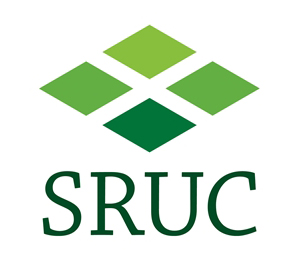Blog by David Webster, LEAF (Linking Environment And Farming)
In the last 30 years, there has been a massive shift in understanding the links between farming and the environment. It has also become abundantly clear over this period that there are significant challenges, which not only have a consequence in terms of environmental decline, but which are now placing a direct threat over farming systems and the commercial operation of farming businesses.
Last winter is a good example. If we believe what the climate scientists are telling us and I see no reason not to; then we are about to head into a period where the volatility in weather patterns we've been experiencing is set to continue.
It means that we have to change how we think about managing our farming operations because if we don’t know, then legislation will soon compel us to do so.
This is where progressive, world leading research organisations such as The James Hutton Institute can come together with the most forward-thinking farmers. By working through these challenges together we can drive resilience and strength in our farming systems delivering real commercial outcomes alongside environmental protection and enhancement. I am conscious though that it is not for us to tell farmers what to do or what decisions they should make. Instead, it is about bringing progressive practices to their attention, and to show how these can bring benefits to them. Change won’t happen unless the farming community owns that change and that is why I think organisations such as AHDB are critical. They have been engaging with farmers directly for many years through demonstrating the benefits of new approaches and types of practice.
I do not underestimate the risks of trying something different – the stakes are high if you are an arable farmer in the UK. A highly collaborative approach is needed to identify the interventions required to significantly reduce emissions, increase soil carbon, and sustain habitats for biodiversity. This is why LEAF works with the Hutton. We are taking best practice from academia and applying it across our network of 40 demonstration farms. We connect our members to what's happening on those demonstration farms through peer-to-peer learning. As we journey towards net zero, I think this type of learning will accelerate as we share information and establish what has worked and just as importantly, what hasn’t.
I am absolutely delighted to have been asked to open this year’s Arable Scotland event at Balruddery Farm on the 2nd July.
Not only will I get to visit the Hutton, which has been a long-held aim for many years and to hear about their latest scientific developments; but I am keen to see and learn more about regenerative farming practices such as cover cropping and soil structure management within the context of Scottish agriculture. I also want to meet and talk with local farmers and crofters as well as industry bodies, and crucially, to listen and to learn first-hand about their unique challenges and how we can work together to accelerate the transition to more sustainable farming.
Hear more from David in our ‘Arable Scotland special’ podcast: https://bit.ly/3RjMesn



